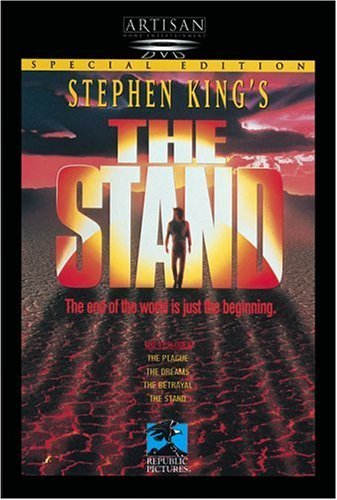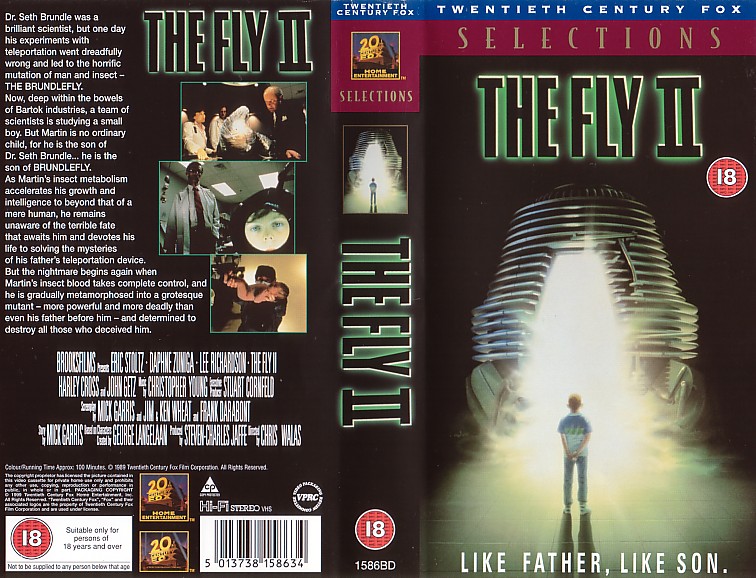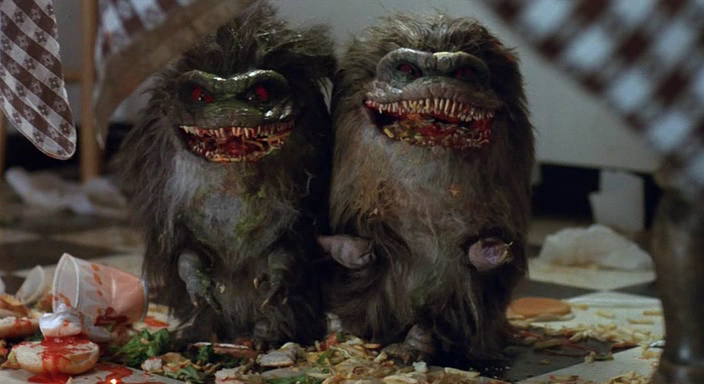William Bibbiani Interviews Master of Horror Mick Garris about Post Mortem!
In recent years, horror veteran Mick Garris (The Stand, Critters 2: The Main Course) has been enjoying a career renaissance thanks a series of TV show ideas that we all wish we’d thought of first. “Masters of Horror” was a hit (and occasionally miss) anthology series which gave horror directors free reign, sometimes for the first time in their careers, to make whatever film they wanted without censorship (except for Takashi Miike, whose episode “Imprint” proved too hardcore even for Showtime). Now he’s at it again with a new series, “Post Mortem with Mick Garris,” in which he interviews horror legends on FEARnet.
The first episode, featuring an interview with make-up legend Rick Baker (An American Werewolf in London, Planet of the Apes, The Wolfman), aired February 8th. Mick Garris was kind enough to sit down and answer some questions himself with Geekscape interviewer William Bibbiani… from many miles away and at the comfort of his own desk.
Mick, thank you for answering our questions. Any horror fan worth their salt is familiar with your work and will certainly be interested in watching your new show, “Post Mortem.” I’d like to take this opportunity to discuss this new program and, if I may, ask some questions about your own work in the genre.
You’ve said before that the idea for “Masters of Horror,” your anthology series starring famous horror directors as opposed to actors, per se, came about when you and many of the directors who contributed to the series were all eating dinner together. How did “Post Mortem” come about? Were you just talking to Rick Baker and said, “Hey, we should be filming this?“

A better story than the real thing, I guess. It really came from when we were doing MASTERS, and I thought it would be an interesting way to get into the minds of the filmmakers who were working on the show. I felt there was a fan appetite for seeing how the greatest filmmakers in the horror genre worked individually. Many years ago, I did a show called FANTASY FILM FESTIVAL for LA’s first pay TV channel, the Z Channel. This was before I was a working screenwriter or director, and I learned a lot from those interviews. I was between productions, waiting to find out what I’d be directing next, and thought it would be fun for me and the fans.
What format is the show going to take? Is the series going to feature lengthy, “Inside the Actor’s Studio” dissections of the guests’ work or will the emphasis be on more recent projects?
Kind of both. We interview the guests for over an hour, rather than little talk-show promotional soundbites flogging the new project. We start with their beginnings, but each of the interviews takes on a life of its own. They’re conversations about a genre we love and work in. I go in with a list of questions that I never end up looking at, and the talks kind of find their own direction.
From the outside looking in, it would appear that you know just about everyone who is anyone in the horror industry. Is there anyone who you would consider a dream “get” on “Post Mortem?” Is there any individual in particular you still geek out about meeting?

Well, there are surely some people I’d love to have on that probably won’t work out. I don’t think King’s or Spielberg’s or Romero’s schedules will allow. And there are a lot of international filmmakers worth speaking with who aren’t in LA (or, for that matter, don’t speak English). But the main ones I’d love to get are all, well, dead. Imagine a chat with James Whale, or Jack Pierce, or Boris Karloff.
Were there any directors for “Masters of Horror,” “Fear Itself” or “Masters of Science” that you wanted but could not schedule? I remember hearing at a San Diego Comic Con panel that Lucky McKee replaced Roger Corman on the first series. What can you tell us about the tricky process of “casting” star directors, in both your anthology series and “Post Mortem?”
We came close to getting Romero and Corman, but they just didn’t work into the schedule. Same with Wes Craven. Scheduling is the single most complicated element, both in MASTERS OF HORROR and, we’re finding out, with POST MORTEM. We’ve had several times where guests were set on POST MORTEM where they had to cancel due to illness, or to reschedule. Clive Barker was one of them, and I was really looking forward to speaking with him about the many facets of his career. When, on MASTERS, the train starts to roll, you have to schedule each ten-day shoot back-to-back. There’s no stopping and waiting for somebody’s calendar to clear. Each little change throws everything into chaos. It’s amazing we achieved what we did.

Segueing awkwardly into your own work, many horror fans associate your work with Stephen King (EDITOR’S NOTE: For the uninitiated, Garris directed the TV movie of The Stand, the TV movie of The Shining, the TV movie Desperation, all based on King’s work, and the feature film Sleepwalkers, which was from an original Stephen King screenplay). What’s your working relationship with, as my ex- roommate liked to call him, “Uncle Stevie?” We know he trusted you with a faithful adaptation of The Shining, which is kind of a big deal since he wasn’t a fan of Kubrick’s original…
He’s a great friend, though since we live on opposite coasts, I don’t see him that often. But he’s a lot of fun to have on a set, and just the most terrific and enthusiastic collaborator a filmmaker could ever have. When he trusts you, he trusts you completely. I’ve never had him tell me how he thought I should shoot a scene… but he’s always there with ideas and inspiration. Most of the work we’ve done together is not only from his books, but from his own screenplay adaptations, so we start with great material and blueprints. That gives us a great edge.
Fifteen years gone, The Stand is still considered one of the best, and certainly most memorable, TV mini-series in decades. Possibly ever. When you look back on the series, is there anything you would have done differently, or any moments you’re particularly proud of?
There’s a lot I would have done differently on every project I’ve ever done. Hopefully you continue to grow in your chosen profession. There isn’t a production I’ve been on that I haven’t learned something from. But I’m really happy with so many of the performances, the dramatic elements of the film. The visual effects were always too cheap for their own good, but they’re particularly embarrassing now, in light of how far digital effects have come. But for me, Part One and Part Four are the most potent.

Segueing hopefully a little less awkwardly into some of your earlier work, another writer/director who is well-known for his Stephen King adaptation is Frank Darabont, and you both worked on the screenplay for The Fly 2. David Cronenberg’s film was a tough gig to follow, and although The Fly 2 may not have been as well-received, it had no shortage of interesting ideas. What was your approach to writing the sequel, and were there any interesting takes on the material that never got out of the larval stage?
Well, I was the first writer to tackle the script, on Cronenberg’s recommendation. My original concept was more in line with the feeling of Cronenberg’s film. It dealt with concepts of birth and abortion, an evolutionary next step in the “special” child of Veronica Scaife and Seth Brundle. Religious fanaticism played a part, and there was a lot going on. But at the time, Leonard Goldberg was running the studio, and Scott Rudin was our production executive. They had contrasting views of how the movie should be done, and I was right in the middle. They wanted to make a teenage horror movie, which was not how I wanted to go. There were a couple of drafts of the script before I was lucky enough to be offered my first feature to direct, the Story That Needed To Be Told, CRITTERS 2.

I may or may not be alone on this, but my favorite film of yours is easily Critters 2: The Main Course, which is one of those rare sequels that in my opinion outdoes the original. And again, it’s full of interesting ideas and memorable moments, like the shapeshifting staple gag or the Krite latching onto the Easter Bunny’s crotch. How did you get the gig, and what was the writing process like with David Twohy? Was the Easter Bunny scene autobiographical, for example?
I never worked with David; he did the original draft of the script, and I met him a couple times during the process, but we never worked together. I was hired off of my work on AMAZING STORIES, as both writer and director. Once they brought me on board, they wanted me to write from then on, from some of their ideas as well as some of my own. No, I never lost my gonads to hungry critters, dang it, but it made for a great scene. I really had a blast making that movie. It was filled with humor as well as horror, and took the time to create some interesting characters.
The other sequels were actually pretty good, particularly Critters 4, which unlike most horror sequels actually had a reason to go to space. (I’m looking at you, Leprechaun franchise…) Did you watch the films in the Critters series that followed yours? What was your take on them?
I saw them because they were written by David J. Schow, who has been a close friend for years. I liked them; there’s something really scrappy and imaginative about these inexpensive little beasties that I find endearing. There is a reach that might exceed their grasp, but everybody gave their all on those films.

And finally, what’s Mick Garris the “Horror Geek” like? What are your personal tastes in viewing material, as opposed to films you gravitate towards directing? What recent horror movies really excited you, and what new directors are you most interesting in seeing evolve?
I just like a good story, or seeing something I haven’t seen before. A lot of the Masters still do fantastic work, and I love keeping abreast of it. But there’s great stuff from other countries that I find impressive. I’m not big on franchises, sequels and remakes and the like, but remember, Cronenberg’s THE FLY and Carpenter’s THE THING were masterful remakes that stand on their own merits. But I loved LET THE RIGHT ONE IN, PAN’S LABYRINTH, SHIVER, MIDNIGHT MEAT TRAIN, lots of stuff out there. I’m not big on gore for gore’s sake, but I like when it’s used boldly and inventively when the story calls for it. But give me a good story, interesting characters, and surprise me; take me somewhere I’ve never been and scare the shit out of me and I’m happy as a pig in shit.
Thank you for your time! Geekscape looks forward to the new show and wishes you all the best.
And thanks to you. Hope you enjoy it.
